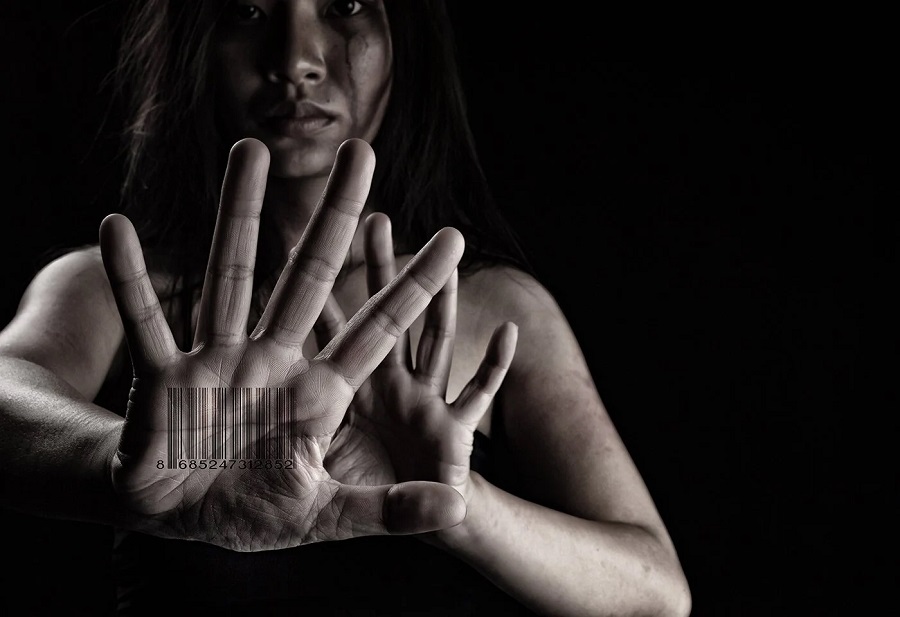-By LeN Investigative Journalist

(Lanka-e-News -19.Aug.2025, 11.00 PM) It is the scandal that no one in Sri Lanka’s corridors of power wants to discuss, but one that demands urgent reckoning. Behind the glass towers of corporate boardrooms and the grandiose offices of political elites lies a sordid network of sexual exploitation, where vulnerable women and underage girls are coerced into becoming the currency of influence.
Two victims, speaking to Lanka e News, recounted harrowing stories of how they were forced to provide sexual favours to politicians at the behest of a corporate magnate in the leasing sector—one of the wealthiest men in the country, with interests ranging from agriculture to vehicle imports. Their testimony suggests that women employed in respectable offices are being used as bargaining chips in a shadow economy where “sex bribes” secure contracts, government concessions, and protection.
What is being alleged is not an isolated aberration. Victims and whistleblowers point to a pattern: powerful conglomerates, casino operators, and shipping giants providing women to politicians, customs officers and departmental heads in return for business advantages. In many cases, women were recruited under the guise of employment and then pressured into sexual servitude to satisfy clients who held power over licensing, contracts, or state approvals.
The scale is staggering. According to leaked accounts seen by Lanka e News, no fewer than 481 politicians across the political spectrum—SLFP, SLPP, and UNP—were named as beneficiaries of sex bribes in the past two decades. Some of the facilitators, insiders allege, include prominent women in politics—widows of former presidents, relatives of current opposition leaders, even a former mayoress of Colombo, and Thirty eight journalists names exposed by the victims.
This web reportedly extended to Buddhist monks, senior bureaucrats, and sporting officials, tarnishing institutions from the Sri Lanka Cricket Board to the Football Federation. Victims allege that women in the apparel industry and logistics sector were particularly vulnerable, as managers pressured them to “entertain” policymakers in order to win export contracts or Board of Investment (BOI) approvals.
Despite the enormity of the allegations, successive governments turned a blind eye. Victims were silenced with threats, while perpetrators grew richer—expanding supermarket chains, acquiring ports, and even purchasing state-owned enterprises under the banner of “privatisation.”
This culture of complicity means that many of Sri Lanka’s most celebrated business success stories may in fact rest on a foundation of coercion and sexual exploitation.
The allegations, if substantiated, paint a disturbing picture: that the wealth of some of Sri Lanka’s richest tycoons was built not merely on shrewd deals but on the systematic trafficking of women to politicians and policymakers.
The new NPP government is in a unique position. Unlike its predecessors, it is not implicated in the allegations. That gives it the political cover—and moral obligation—to open the darkest of cupboards. Civil society groups are urging the administration to launch a full-scale independent commission of inquiry into the nexus of sex trafficking, politics and business, with powers to subpoena records and protect whistleblowers.
Diplomats in Colombo are also being urged to scrutinise visa applications of wealthy Sri Lankan businessmen. “The world must ask how these individuals made their money,” said one rights activist. “Many of them were granted access to global markets and political influence by trafficking women at home.”
For Sri Lanka’s most vulnerable women, this is not merely a scandal—it is an ongoing nightmare. Many young women report being told that their employment, and their family’s survival, depended on submitting to the demands of politicians or corporate bosses.
“This is our mothers and sisters being forced into sexual servitude so that a CEO can secure a port contract, or a tycoon can import vehicles duty-free,This is “ME TOO” moment of the Sri lanka” one victim told Lanka e News.
The message is clear: unless the system is broken, the exploitation will continue. The government’s challenge is to demonstrate that in the new Sri Lanka, political and corporate power can no longer be bought with the bodies of the powerless.
Until then, the whispers will persist—and the victims will remain trapped in silence.
-By LeN Investigative Journalist
---------------------------
by (2025-08-19 18:49:06)
Leave a Reply